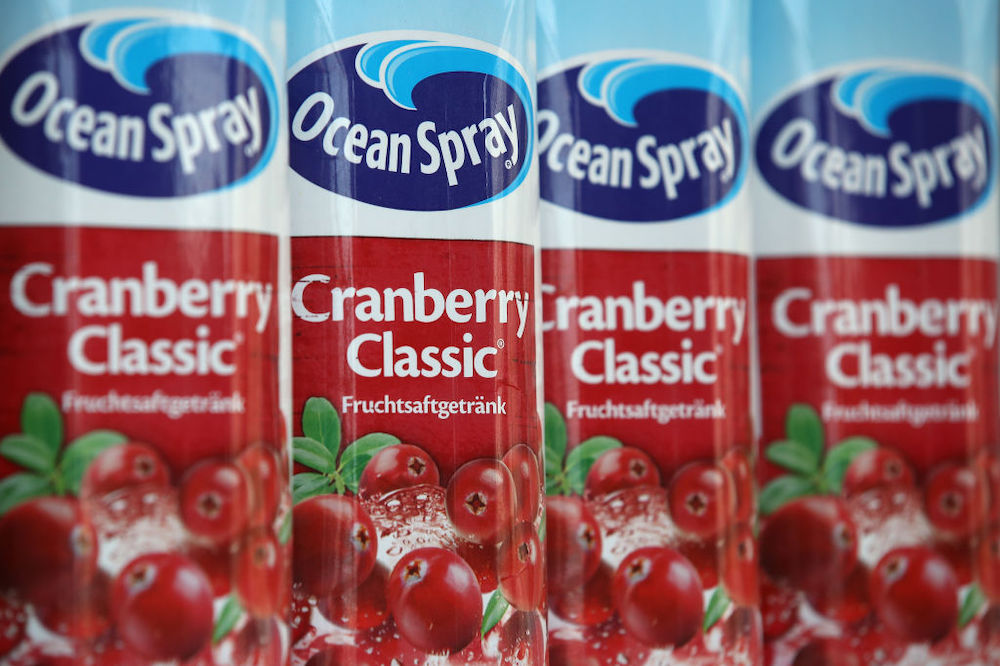- Ocean Spray’s cranberry farmers have gone through an extensive auditing process to verify their efforts to grow crops in a sustainable way, says the company.
- The verification process enables farmers to put in place new solutions to drive sustainability. Ocean Spray growers have installed innovations including renewable energy powered irrigation systems.
- Sustainability audits are generally costly for farmers and may drive up the cost of the end food products for consumers, an analyst told Karma.
Ocean Spray Inc. wants customers to know that its cranberries are grown in a sustainable way, even undergoing a potentially costly and time-consuming auditing process to verify it.
The cooperative of farmers, founded almost 90 years ago, achieved its goal last month, as the Brussels-based Sustainable Agriculture Initiative Platform said 100% of its berries were verified as sustainably produced.
“Ocean Spray is on a mission to improve the health of our people and our planet,” says Christina Ferzli, Ocean Spray’s head of global corporate affairs and communications. “Impact is not a part of our business, it is our business.” The company says it’s the world’s first cooperative to receive the sustainable designation.
The verification process consists of third-party auditors that visit farms and review how farmers are growing their crops and what risks to the environment or the longevity of the business may be present.
The risks in farming depend on the crop and the geographic conditions. Corn and soybeans farmers in the U.S. Midwest can have difficulties accessing water. Sometimes farmers add fertilizers to their soil which seeps into the groundwater. This is a waste of nutrients that should stay on the farm and it pollutes the surrounding environment, says Nick Betts, the director for the American division of the Sustainable Agriculture Initiative Platform.
“I would argue that water and nutrient management would be the things that they can probably improve the most,” Betts told Karma. “The verification process enables the farmers to communicate what they’re doing to increase their sustainability on the farm. It’s like a doctor checkup.”
The initiative’s verification process allows farmers to adopt a range of technological innovations to increase the sustainability of their agricultural activities. Ocean Spray growers — more than 700 farmers spread across the U.S., with some located in Canada and Chile — have installed soil moisture monitoring systems that save water by only irrigating the crops when they need it. Farmers have also put in place solar- or wind-powered auto irrigation systems.
The cooperative says that the verification process is meant to drive what it refers to as regenerative agriculture, which aims to improve soil health, biodiversity and conserve surrounding environments.
All of these undertakings can be costly for farmers and can drive up the cost of the end food products for consumers, Betts said.
The farmer-owned cooperative declined to disclose the cost of the verification project. The company said that most of the costs for the process were related to auditors traveling around the world to inspect its farms. Costs aren’t being passed on to consumers, Ferzli said.
“The verification process was never about costs. It was always about impact,” Ferzli says. “We hope that innovation in sustainability allows our farmers to mitigate costs on their farms, but for Ocean Spray our program is about doing the right thing for our planet.”
Photo by Sean Gallup/Getty Images






















